Hundreds Of Iranian Activists Call For A Free Referendum
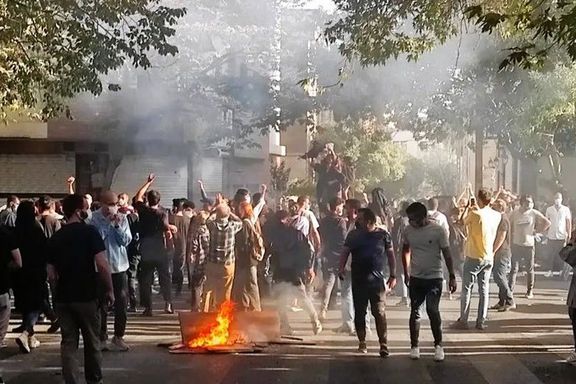
Over 400 Iranian civil and political activists say the only "violence-free and democratic" solution for transition from the Islamic Republic is holding a democratic referendum.

Over 400 Iranian civil and political activists say the only "violence-free and democratic" solution for transition from the Islamic Republic is holding a democratic referendum.
In a statement on Saturday, they called the "Woman, Life, Freedom" movement a symbol of "opposition to all kinds of discrimination, privilege, and religious and political tyranny" adding that it is the result of "the impasse of the reform movement" in Iran.
The signatories noted that the most important lesson of the "Woman, Life, Freedom" movement is the necessity of "organized efforts to demand justice, as well as the abolition of intimidation, privilege and discrimination."
They emphasized that despite the "heavy costs brought about by repression", resistance is the only way to "push back the tyranny step by step".
The activists have warned that although "the uprising seems to have subsided, but if the political and socio-economic crises continue, it has the capacity to quickly break out in different ways and even lead to a nationwide eruption".
Former MPs Alireza Rajaee and Fatemeh Rakeei, senior Member of the Mojahedin of the Islamic Revolution of Iran Organization Abolfazl Qadyani, and former Tehran Mayor Morteza Alviri are among the most salient figures who have signed the statement.
Human rights organizations say over 500 have been killed in the recent Iran protests, which were ignited by the death of Mahsa Amini in the custody of the morality patrol. The protests quickly targeted the entire regime, and since then the civil disobedience of Iranian women against the mandatory hijab has intensified.
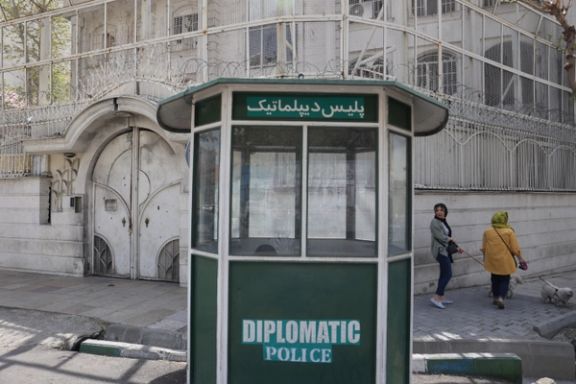
Government media and regime supporters in Iran have been speculating about the economic benefits of restored diplomatic ties with Saudi Arabia, amid domestic crisis.
Dozens of articles and interviews have been published in Tehran media in the past month on a possible economic windfall, since China brokered a deal between Iran and Saudi Arabia to re-establish relations after a seven-year bitter animosity.
The reason for the high degree of Iranian interest in economic and trade ties are clear. Saudi Arabia has turned into a financial and economic power house, not only in the region but in the world. Its influence in the energy market is on the rise with the latest OPEC+ agreement to further reduce oil production and keep prices high.
Saudi Arabia’s GDP has grown from $200 billion to more than $800 billion in the past 20 years, while Iran has been subjected to international and US sanctions with its energy and non-oil sectors struggling to stay afloat.
By the most optimistic estimates, Iran’s GDP is less than $250 billion, down from $480 billion in 2016, and even Iraq, with all its internal problems has caught up with its much larger neighbor because of relentless and rising volume of oil exports. Non-oil producing Turkey has long surpassed Iran by a more than $800 billion GDP.
Iran has become a small and insignificant oil exporter since the United States imposed crippling third-party sanctions on its energy and banking sectors in 2018, when former President Donald Trump withdrew from the JCPOA nuclear deal, demanding major concessions from Tehran.
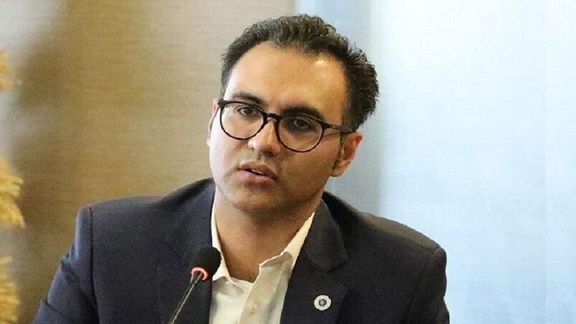
However, an Iranian businessman, Mehdi Alipour, speaking with FarazDaily website in Tehran explained that many Sunni Arab countries in the region, such as Egypt, Jordan and the Emirates follow Saudi Arabia’s foreign policy line and if Tehran establishes good ties with Riyadh chances are that it will also secure more trade opportunities.
Iran’s main non-oil exports are petrochemicals, steel and agricultural products, but so far except in Iraq, it has a very small share of the market in other Arab countries.
In case of Saudi Arabia, chances are that Iranian products would not be able to compete with Chinese imports, like in many other markets. The only advantage Iran has is its geographic proximity, but not the volume of production that makes cheaper products possible.
China exported almost $30 billion of goods to Saudi Arabia in 2021, a year marked with the Covid pandemic. There are no final figures for 2022.
However, any significant uptick in Iranian exports depends on removing US economic and banking sanctions. Even Iraq that imports natural gas and electricity from Iran does not pay in cash and it owes Tehran more than $11 billion. Iranian funds are kept in Trade Bank of Iraq and the Islamic Republic can only buy humanitarian essentials with the money in Iraq.
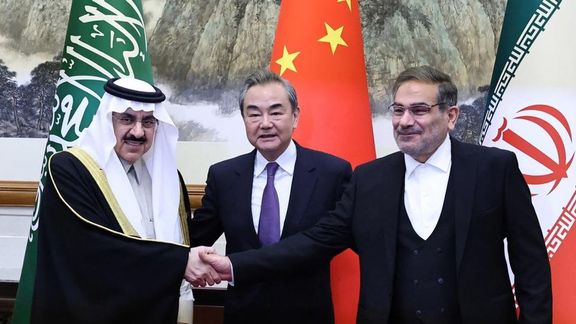
Iranian media also hint at potential Saudi investments, although this seems a more far-fetched proposition than trade. Domestic and foreign private sectors have a tough time in investing confidently in the current circumstances in Iran with draconian government interventionism and the state directly or indirectly controlling 80 percent of the economy.
Saudi Government investments could be a different matter, but even China has pulled out of Iran after initial attempts to get a foothold a decade ago.
It seems that most of the talk in Iran about an economic windfall from relations with Saudi Arabia are aimed at instilling optimism among the people and helping the battered local currency with spreading positive news.
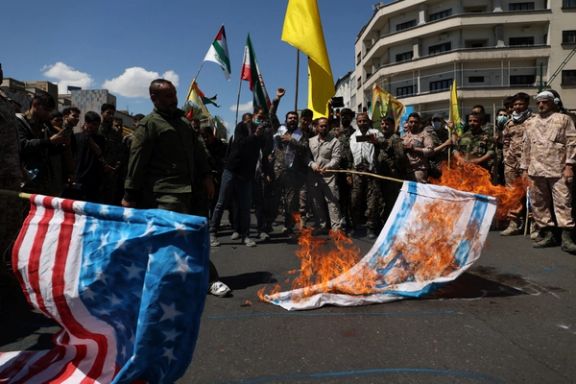
Iranian officials, clerics and military commanders made pompous remarks about the demise of Israel on the last Friday of Ramadan, the regime’s Quds Day.
Those with a controversial background made the most outlandish hard-line comments to prove their loyalty to the regime.
The rhetoric used on Qods Day speeches were a mixture of impolite, uneducated and politically incorrect opinions and part of Iran's rationalization of its irrational phobia about Israel's influence in the region.
Deputy IRGC Commander for Political Affairs General Yadollah Javani who was implicated last year in an infiltration case involving an alleged Israeli agent, Catherine Shakdam, a former consultant for UNSC on Yemen, went out of his way to threaten Israel's Jewish people rather than the Israeli government. He said, "The Jews should know that Israel is no longer a place to live," and told them "pack your suitcases!"
Javani stressed: "Israel should be wiped off [the map] and this is something that will materialize and the Jewish people will have to return to their home countries." Javani who was speaking in Rasht in northern Iran said the enemies are downplaying the importance of the Quds Day by creating doubts among young Iranians.
In Tehran, the day was marked in one of the Iranian capital's smallest squares, the Palestine Square and later on Revolution Square, a slightly larger venue to make sure that the people who were bussed in would fill the space.
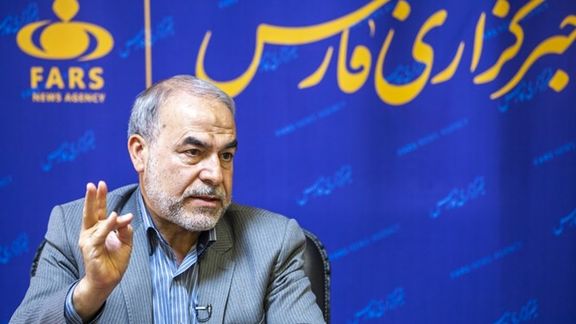
Javani claimed the Quds Day is now an international event. This was against the fact that some counties including Germany have reportedly banned Quds Day events.
He further claimed that recent unrest in Israel was a sign of its impending destruction, adding that the "Zionist regime" is no longer capable of surviving.
In Tehran, the former Judiciary Chief who currently chairs the Expediency Council, Sadegh Amoli Larijani, another insider implicated in major financial corruption cases, claimed the issue of Quds [meaning the problem of Palestine] is the world's biggest problem.
Another speaker, vice president for economic affairs, Mohsen Rezaei, said that Iran is collaborating with regional counties to create a strategic alliance against Israel. He was obviously mindless of the fact that nearly all Persian Gulf Arab countries maintain friendly ties and trade and cultural relations with Israel.
The rhetoric against Israel was also heightened IRGC-linked Fars news agency which recycled old comments by Khamenei on Israel. The report quoted Supreme Leader Ali Khamenei as saying that by wiping Israel [off the map] he meant that one day the Palestinians will elect their own government, and this is something that will most certainly happen.
Highlighting that Khamenei does not call for the destruction of the Jewish people stems from the fear of Israeli threats to attack Iran's nuclear facilities even without US help.
Khamenei is also utterly shaken by recent attacks attributed to Israel on Iran's military interests in Syria. Some recent reports indicated that Israel had attacked the depots of Iranian military equipment airlifted to Syria disguised as relief aid following a recent earthquake in the region. Iran has named at least three IRGC commanders who were killed during Israeli strikes.
On the other hand, Tehran hopes that news of conflicts in Israel and missile attacks on the country will overshadow the fiasco that followed alleged Israeli attacks on Iran's drone factory in Esfahan. Regime insiders might even hope that the anti-Israeli propaganda would downplay the importance of nationwide protests in Iran and rally Iranians behind the regime.
This hope was dashed by low turnout in Quds Day rallies as Iranians continue to defy the regime, especially rejecting its campaign to force women to use hijab.
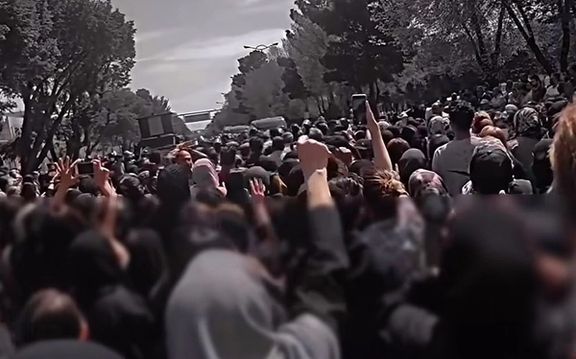
Riot police in central Iran Saturday tried to disperse a large crowd of people with tear gas and shotguns who were protesting ongoing gas attacks on schoolgirls.
Parents and students who gathered spontaneously outside the education department of Shahin-Shahr, near Esfahan Saturday morning soon began chanting anti-government slogans. “We don’t want a child-killing government,” they chanted.
According to Hosseinali Haji-Deligani, representative of the district in the parliament, twelve schools were attacked in the city of around 175,000 on April 11.
Videos posted on social media also show people chanting “Down with the Dictator” and “Down with those responsible for the poisonings” and a member of the security forces threatening them over a loudspeaker.
Some of the women protesting in Shahin-Shahr, as videos show, attended the rally unveiled in defiance of the government’s new attempts to re-establish strict hijab rules.
Dozens of schools have been targeted by unidentified people using chemicals in various cities across the country including Esfahan, Tabriz, Shahin-Shahr, Genaveh, Kermanshah, Oshnavieh, Kamyaran, Ardabil, Sanandaj, Orumieh, Karaj, and Pardis to the south of the capital since the reopening of schools and dozens of girls have been hospitalized.
Attacks against girls’ schools started in November and subsided before the Iranian new year in March, but they have resumed in full force.
Many believe that the attacks are a coordinated effort by state-protected religious vigilante groups or the state itself to frighten students and their parents so that they will keep away from anti-government protests or even education for girls.
Women and girls having been at the forefront of anti-government protests that began in mid-September following the death of the 22-year-old Mahsa Amini in the custody of ‘morality police’. They have burned their headscarves and cut their hair in defiance of the regime, and many are vowing they will never wear the compulsory hijab again.
On Saturday several new attacks were reported in Izeh in the southwestern Khuzestan Province, Sanandaj, the capital of Kordestan Province and other cities. A call to protest outside the education department of Izeh on April 16 and 17 has been circulating on social media. The city of around 100,000 was the scene of some bloody protests in November and December.
Demonstrations were also held in the Kurdish majority city of Saqqez on April 9 after half a dozen schools were attacked. Protesters who chanted anti-government slogans and lit bonfires on the streets were similarly attacked by security forces and several protesters were arrested.
The principal of one of girl’s schools attacked in Saqqez last week resigned in protest to the authorities’ failure to find the perpetrators of the attacks. Parshang Ranjbari said her resignation should be considered as “civil protest”.
The scale of the intentional poisoning of female primary and secondary school students -- which started in the religious city of Qom - and reached schools in large and small towns and villages across the country has almost become a daily occurrence but deeply concerned parents are still waiting to see the authorities find the perpetrators.
Officials and the state media have continuously tried to downplay the seriousness of the incidents and the press were warned by the Islamic guidance ministry this week not to give coverage to news of the poisonings and even ignore “unreliable sources including some authorities in the province who may not be informed” to avoid “serious damage to the country.”
Meanwhile, on Saturday the police officially commenced using public CCTV images and image recognition software to identify and prosecute women who defy the strict Islamic dress code and hijab rules in a bid to end the ever-increasing appearance of “hijabless” women in public.
Many express outrage that surveillance cameras can be used to track women for not wearing hijab, while the government has failed to identify vigilantes attacking schools.
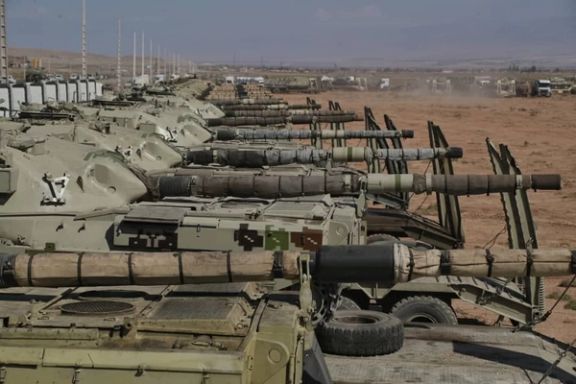
The likelihood of war between Iran and Azerbaijan has increased with escalation between Yerevan and Baku, but pundits in Tehran are optimistic war can be avoided.
Tensions have been high between Iran and Azerbaijan since November 2022 when both sides accused each other of engaging in terrorism and espionage. Iran has also suggested Azerbaijani involvement in the October 26 attack in Shiraz claimed by the Islamic State group (Isis-Daesh).
While some pundits allege that Tehran is awaiting a wrong move by Azerbaijan to attack the country, international relations expert Ali Bigdeli in Tehran told Rouydad 24 news website that the possibility of military conflict between Tehran and Baku is “nil” while criticizing Russia for “silence” over the situation given its close relations with both.
Tehran has also accused Baku of harboring Israeli intelligence and military elements that plan to use its territory in a possible attack against Iran’s nuclear facilities. “The [Azerbaijani] soil is a base for Israel from where it can threaten Iran's security,” Bigdeli said.
He pointed out that Israel has succeeded in “infiltrating” not only Azerbaijan but also other countries including Iran's neighbor Turkmenistan and Central Asian states. At the same time, Shia Iran's attempts to create “centers of resistance” in Azerbaijan where, unlike its Sunni rulers, 60 percent of the population are Shiites irritates Baku.
Around a quarter of Iran’s population is Azari, with analysts and activists disagreeing over the closeness of their cultural-linguistic links to their neighbors to the north.

Hamed Khosroshahi, a Caucasus region researcher in Tehran, expressed a similar view about the possibility of war between Tehran and Baku in an interview with Donya-ye Eghtesad daily. The possibility of war is near zero because both Iran and Azerbaijan are aware that that they have ties that cannot be altered.
Azerbaijan’s Nakhichevan enclave bordering Iran needs to procure gas and oil through Iran on the one hand and Iran's dependence on transit to Russia through Azerbaijan, are important factors he said. “The two sides know that they should not allow tensions rise beyond a certain level.”
While saying that the two countries are currently “appraising” their military power, Vali Khalaji, Caucasus region and Central Asia analyst in Tehran, said escalation of tensions would not necessarily end in war and could instead result in “relaxation of tensions” given factors including interdependent transit needs.
Current tensions are closely tied to the recent escalation between Azerbaijan and Armenia. Secretary of the Security Council of Armenia, Armen Grigoryan on Friday accused Azerbaijan of preparing for military escalation. Baku vehemently denies the charge while accusing Yerevan of violating the Prague and Sochi agreements.
A transit corridor through Syunik province of Armenia which Azerbaijan is demanding to secure access to its Nakhichevan Autonomous region without Armenian checkpoints will disconnect Iran from its de facto ally and trade partner Armenia.
Russia’s Minister of Foreign Affairs Sergey Lavrov met with Armenian Minister of Foreign Affairs Ararat Mirzoyan in Samarkand, Uzbekistan, Friday and among other topics, according to Armen Press, discussed “unblocking of all economic and transport links in the region” and the Nagorno Karabakh issue.
Azerbaijan closed its embassy in Tehran afteran armed attack on Azerbaijan’s embassy in Tehran in January and earlier this month expelled four Iranian diplomats over what it called “provocative actions” which may refer to Iran's several military drills along the border with Azerbaijan in the past year including the latest in October.
Fresh skirmishes at Armenian-Azerbaijani border earlier this week left a total of seven deaths from both sides in one day around the contested Nagarno-Karabakh region. The Islamic Republic says it is neutral in the conflict, but it apparently backs its de facto ally Armenia and has warned it would not tolerate changes to international borders.
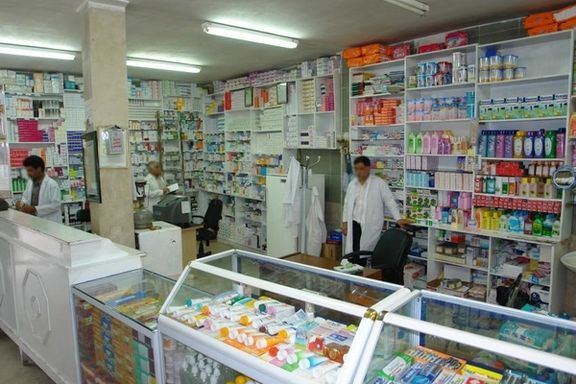
An Iranian official has warned about shortage of antidepressants saying that even IV fluids and cold syrups are also in the list of "urgently needed supplies".
Ali Fatemi, Vice President of Iranian Pharmacists Association told semi-official ISNA news agency Saturday that there is shortage of neuroleptics, antidepressants, and medicines for patients with special diseases.
According to him, the government still imports IV fluid from abroad and even cold syrups are on the list of imported medications.
Meanwhile, Hossein-Ali Shahriari, Head of the Health Commission of Iranian Parliament said Wednesday that if subsidies are not paid to pharmaceutical companies, "the country will face a 40-50% price rise for medicines.”
The government struggles with a shortage of foreign currencies while it claims its oil exports to China have increased despite US sanctions.
Despite the warnings, Minister of Health Bahram Einollahi claims that “most medicines are available, and there will be no problem regarding the supply of pharmaceuticals this year.”
In the previous Iranian year, the medicine crisis intensified as people suffered from multifold price increases while many items were not available at all, pushing people to the black market and smuggled medicines.
The Islamic Republic has been claiming that United States sanctions prevent procurement of medicines, while Washington insists that humanitarian aid is exempt from sanctions and in fact, food, health and humanitarian products are not sanctioned.
Iran has been importing more than $1.5 billion of medicines a year. The country imported around 100 million euros of medicines a month just from Europe in 2022 and also large quantities from China and India.